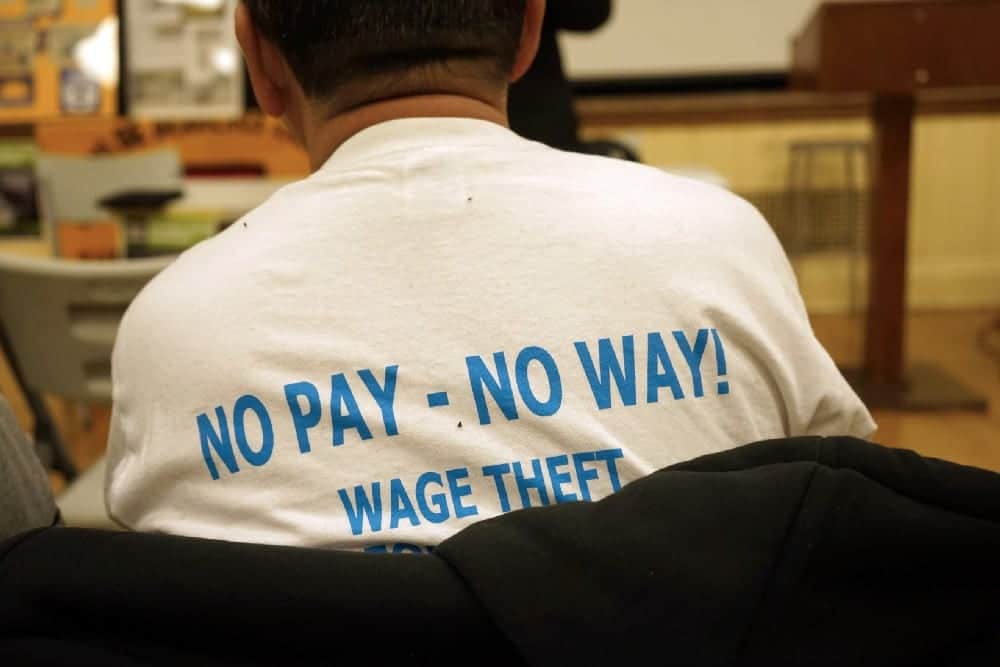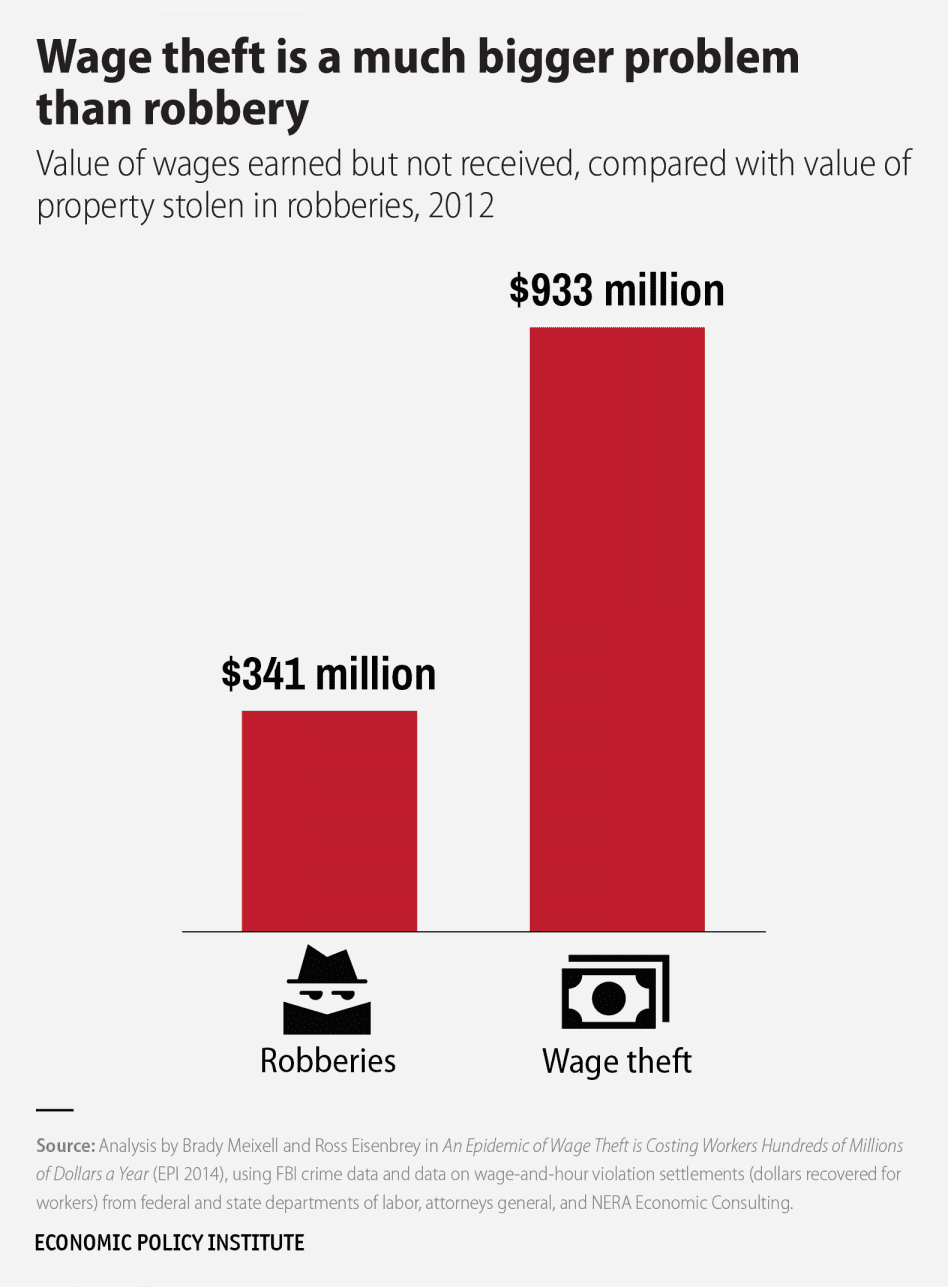Think you may have missing wages? Here’s what you can do
What to do if you suspect you’ve experienced wage theft
JUNE 3, 2019 | COWORKER.ORG
When someone mentions “theft,” a specific crime probably comes to mind, but many people are losing money to theft that comes in the form of a range of wage violations. In fact, far more people are victims of wage theft rather than robbery.
The Economic Policy Institute reported in 2017 that “in the 10 most populous states, 2.4 million workers lose $8 billion annually to minimum wage violations.” Almost any worker may experience wage theft, but those in the service industry and part-timers are more likely to be impacted.
The category of “wage theft” can include a wide variety of different wage violations. Here are some common examples of wage theft:
- Failing to pay overtime or for all the hours worked;
- Not complying with minimum wage laws;
- Misclassifying workers to avoid paying them appropriately
- Forcing workers to work off-the-clock;
- Missing breaks and meal times during shifts — including lactation accommodation;
- In some locations, certain forms of tip pooling and deduction are allowed, but in other cases might amount to wage theft;
- Not paying at all.
There are other things to watch out for too. For example, in some states, paid vacation days are considered earned wages, so taking away accrued vacation could amount to wage theft in some cases. Similar concerns could arise from cutting pension payouts.

Do you think you may have experienced wage theft? Here are some next steps you might want to consider:
Pull together your documentation: Whatever next steps you decide to take, it’s going to be useful to have documentation of the issues you’ve noticed on the job. It’s generally a good idea to retain copies of your pay stubs, records of your hours worked, company handbooks and/or relevant memos and documents — and take notes after conversation about any workplace issues with your manager. In fact, it’s a good idea to keep your own records of the hours you are working even before any kind of problem arises.
Reach out to a local organization: You can contact local organizations that help people who have experienced wage theft. Check out this interactive map if you are looking for local support.
Contact a lawyer: You may want to consult with an employment attorney in your area. Since relevant laws can vary by country, state and city, you’ll probably want to talk to someone with experience near you. Here’s one resource for finding a local employment attorney.
Filing a complaint with the Department of Labor: You might want to consider filing a complaint with the relevant agency in your state. Different U.S. states have different names for the departments and agencies that oversee wage and hour and other labor violations. For example, in California, you might want to reach out to the Division of Labor Standards Enforcement in the Department of Industrial Relations while in New York, you might want to contact the Division of Labor Standards in the Department of Labor. Check out your state’s government website is a good place to start — or you can use this online tool to find information on the agencies that cover labor violations in your state.
On the federal level, the Department of Labor’s Wage and Hour Division covers many of the violations that constitute wage theft. If you want to pursue filing a complaint, check out this page for workers to learn more about your options and how the process works. Be aware that there can be strict time limits for filing with some agencies, and you will need to provide documentation. It can be useful to retain legal assistance with administrative filings.
Get together with your coworkers: Workers have power when they work together and there might be collective strategies you can take to improve your situation. Section 7 of The National Labor Relations Act protects the right of non-supervisory employees to work together to improve their terms and conditions of employment. This protection includes the right of employees to speak publicly to improve your and your coworker’s working conditions, wages, benefits, and other aspects of their employment . It also protects the rights of workers to organize in many other ways including actions like: starting a petition with your coworkers, working with your coworkers to ask your employer for a microwave in the break room, removing forced arbitration for all employees, speaking to press about those issues, and other actions you believe will improve your workplace.
Looking for inspiration? Check out this successful campaign started by former employees of a restaurant in Syracuse, New York who won wages they were owed when their company closed suddenly.
For other tips on how to engage colleagues and other supporters on a workplace issue, check out this previous post. And here’s a simple guide for talking with your coworkers about workplace issues.
Note that the contents of this guide are intended to convey general information only and not to provide legal advice or opinions. Contact Coworker.org for employee-side employment attorney referrals.
Coworker.org is a global platform to advance change in the workplace. Our technology makes it easy for individuals or groups of employees to launch, join and win campaigns to improve their jobs and workplaces. You can start your own campaign about changes you want to see in your workplace on Coworker.org here — or contact us at [email protected] if you would like to discuss a workplace issue with our team.
LABOR WORKERS RIGHTS STRIKE



